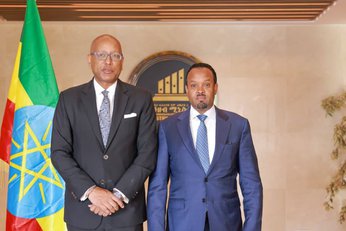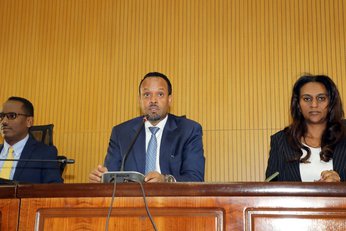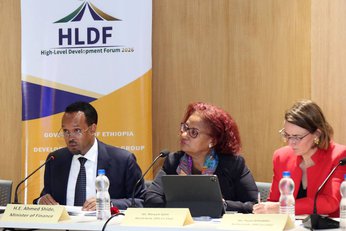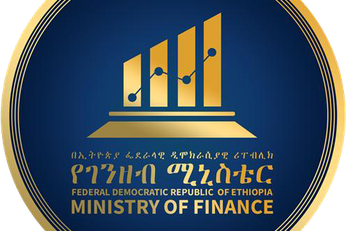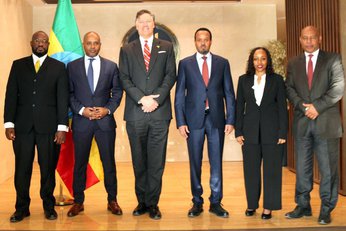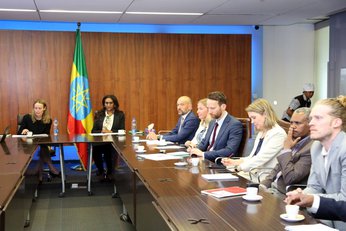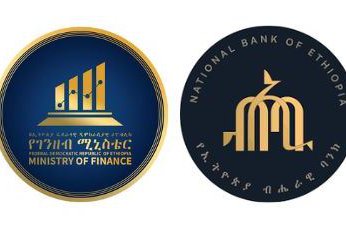Ethiopia urges for Global Responsibility Amidst Urgent Funding Gaps
Published: June 13, 2025
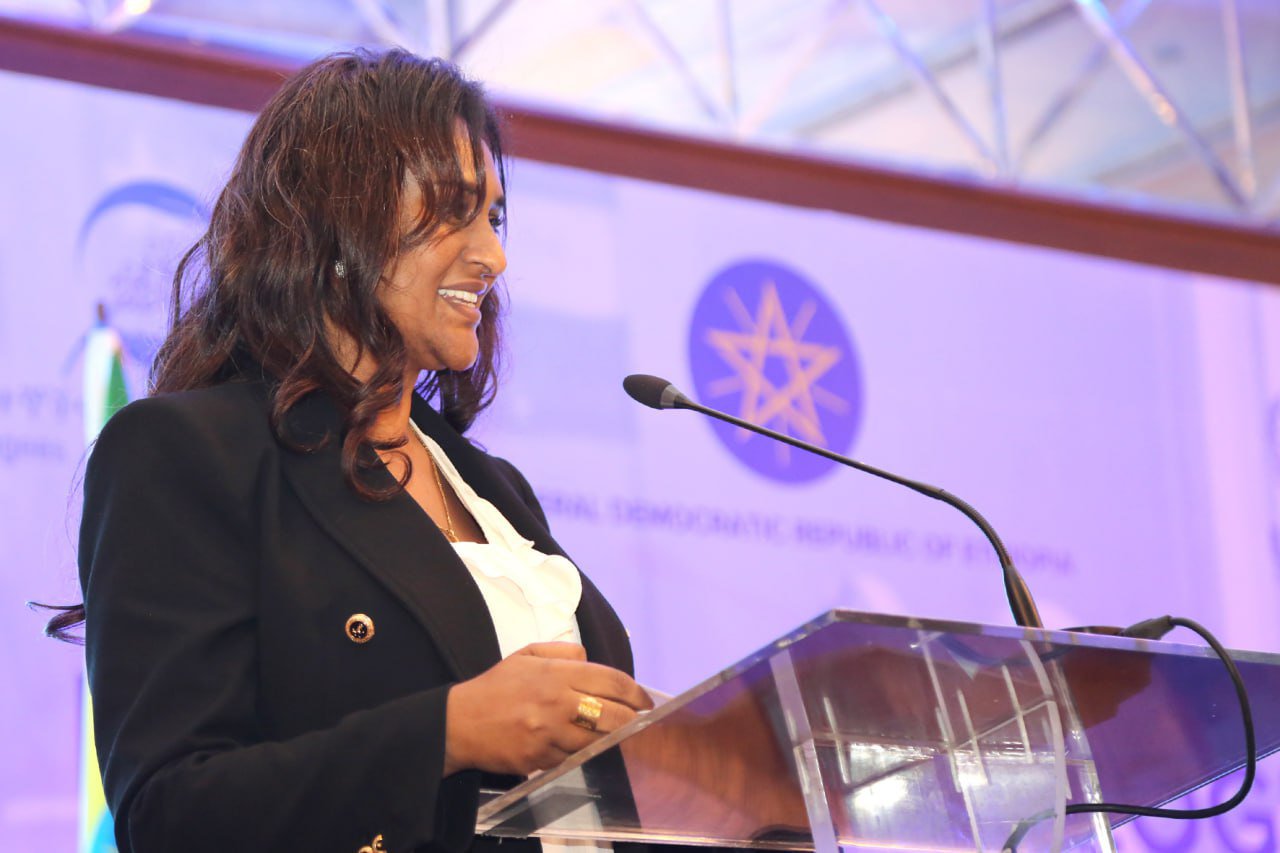
ADDIS ABABA, ETHIOPIA – June 13, 2025 – Ethiopia, a nation pioneering a transformative approach to refugee protection and inclusion, today convened a critical High-Level Dialogue on Advancing Refugee Inclusion and Support to Host Communities at the Sheraton Hotel. While showcasing its profound and unwavering commitment to integrating over 1.1 million refugees into national systems, Ethiopia issued a stark call for enhanced international collaboration and sustained resources, emphasizing that global responsibility-sharing is paramount to scale up these vital efforts. The dialogue underscored that Ethiopia has delivered on its pledges and now urges the international community to uphold its share of the burden.
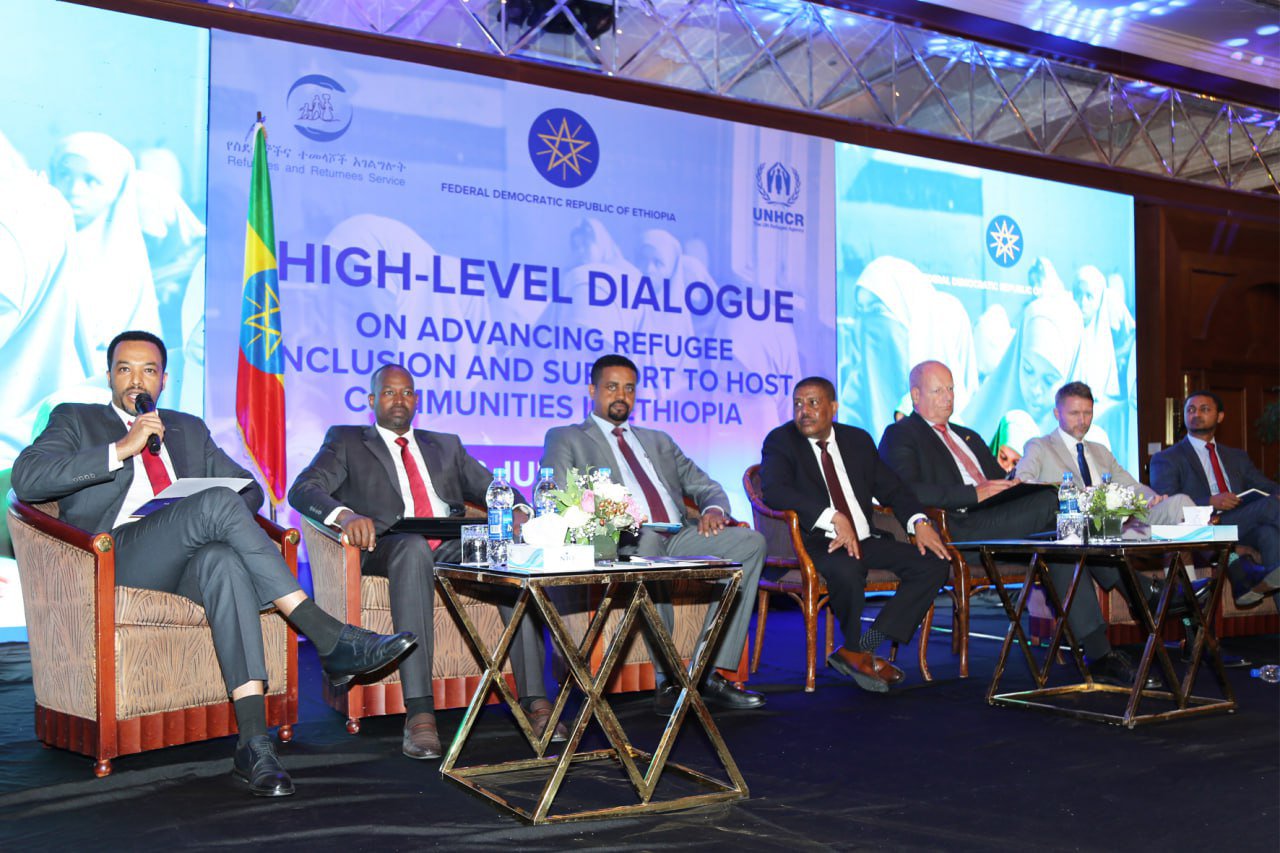
H.E. Ms. Semereta Sewasew, State Minister of Finance, highlighted that Ethiopia’s commitment to refugee inclusion is "not only visionary — it is being translated into real, tangible progress on the ground, transforming lives and strengthening communities". She affirmed that this inclusive approach is deeply integrated with Ethiopia’s Ten-Year Development Plan (2021–2030) and the Homegrown Economic Reform Agenda, reinforcing the nation's commitments under the Global Compact on Refugees (GCR) and Global Refugee Forums. As a long-standing host to over 1.1 million refugees, Ethiopia has actively shifted from traditional humanitarian frameworks towards a protection-oriented, whole-of-government and whole-of-society model that prioritizes dignity, self-reliance, and sustainable development for both refugees and their host communities.
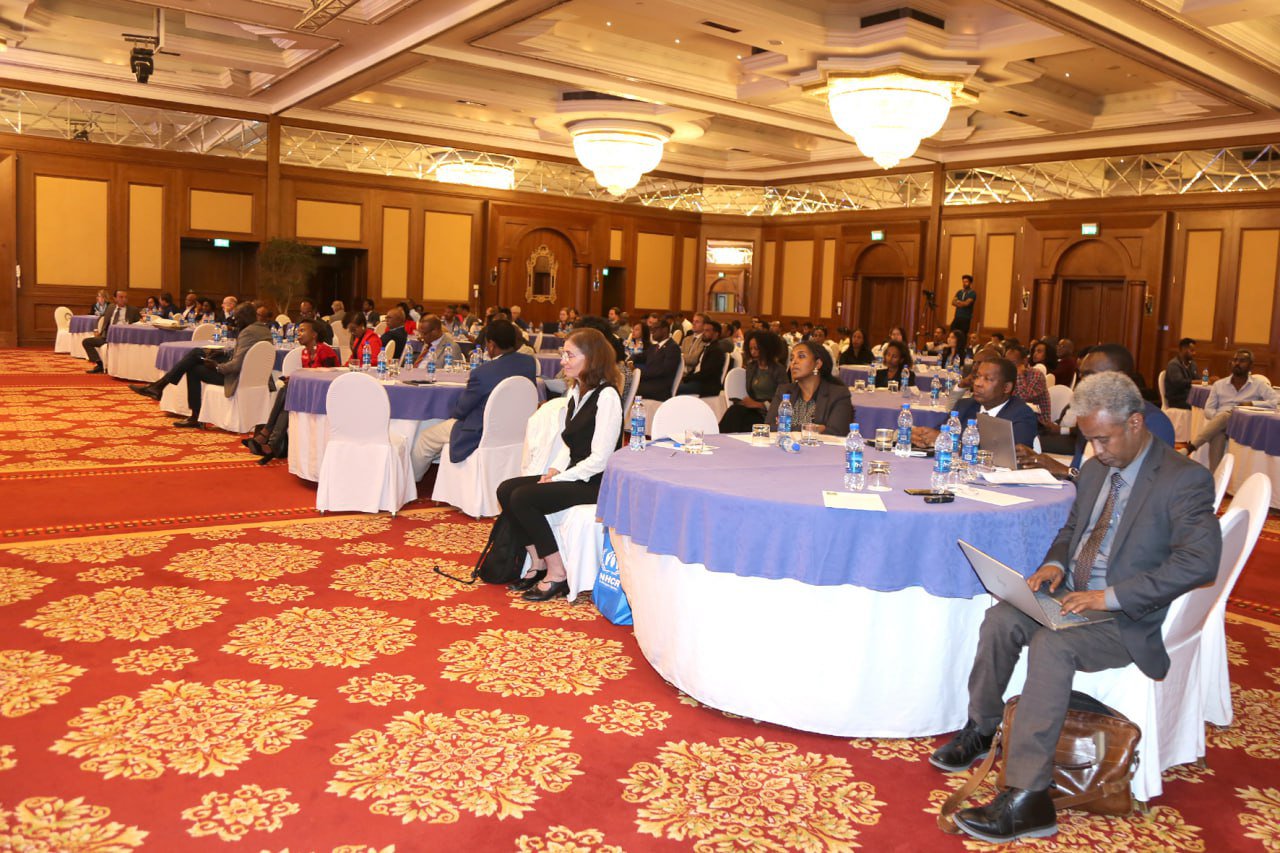
State Minister Sewasew highlighted Ethiopia’s progress under the 2019 Refugee Proclamation, which grants refugees rights to work, education, healthcare, and free movement. Key achievements include integrating refugees into the national civil registration and protection systems, incorporating them into the education and health sectors, and shifting from camp-based to settlement approaches to promote social cohesion. Refugees now participate legally in the labor market and benefit from support programs, enabling self-reliance and economic contribution. Additionally, investments in host communities help foster peaceful coexistence and resilience for all.
Despite notable progress, the state minister acknowledged ongoing challenges such as limited infrastructure in remote border areas and ongoing instability causing new refugee flows. She issued an urgent appeal for coordinated, strategic investments in local services, climate resilience, and infrastructure, emphasizing the need for predictable, sustained international funding. Ethiopia has fulfilled its commitments and calls on the global community to share responsibility, support its inclusion efforts, and adopt a comprehensive, multi-sectoral approach involving all levels of society and partnerships.
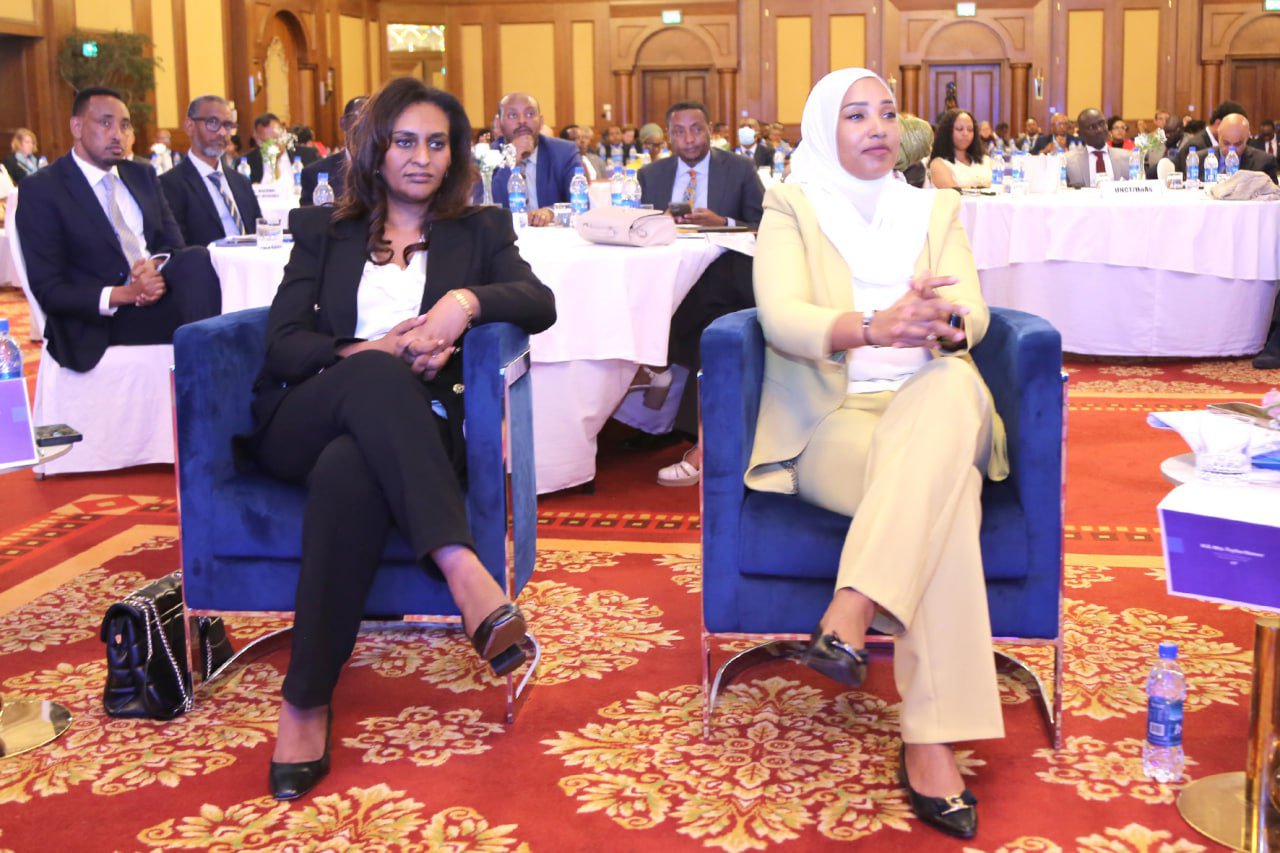
A key point of concern raised was the "decline in humanitarian funding". Minister Sewasew stated that this underfunding is "not merely a gap; it is an urgent call to action". She urged partners for coordinated, strategic investments in local infrastructure, services (such as schools, health facilities, irrigation systems, and digital connectivity), and climate resilience in refugee-hosting areas. She made a powerful appeal for "adequate, predictable, and sustained resources", emphasizing that Ethiopia has delivered on its pledges and now calls on the international community to uphold equitable responsibility-sharing by aligning with its national systems and supporting the financing of its inclusion roadmap. "We are not meant to walk this path alone," she stated, reiterating that the complexity of displacement requires a comprehensive approach engaging "all levels of government, the whole of society, and the full spectrum of partnerships".
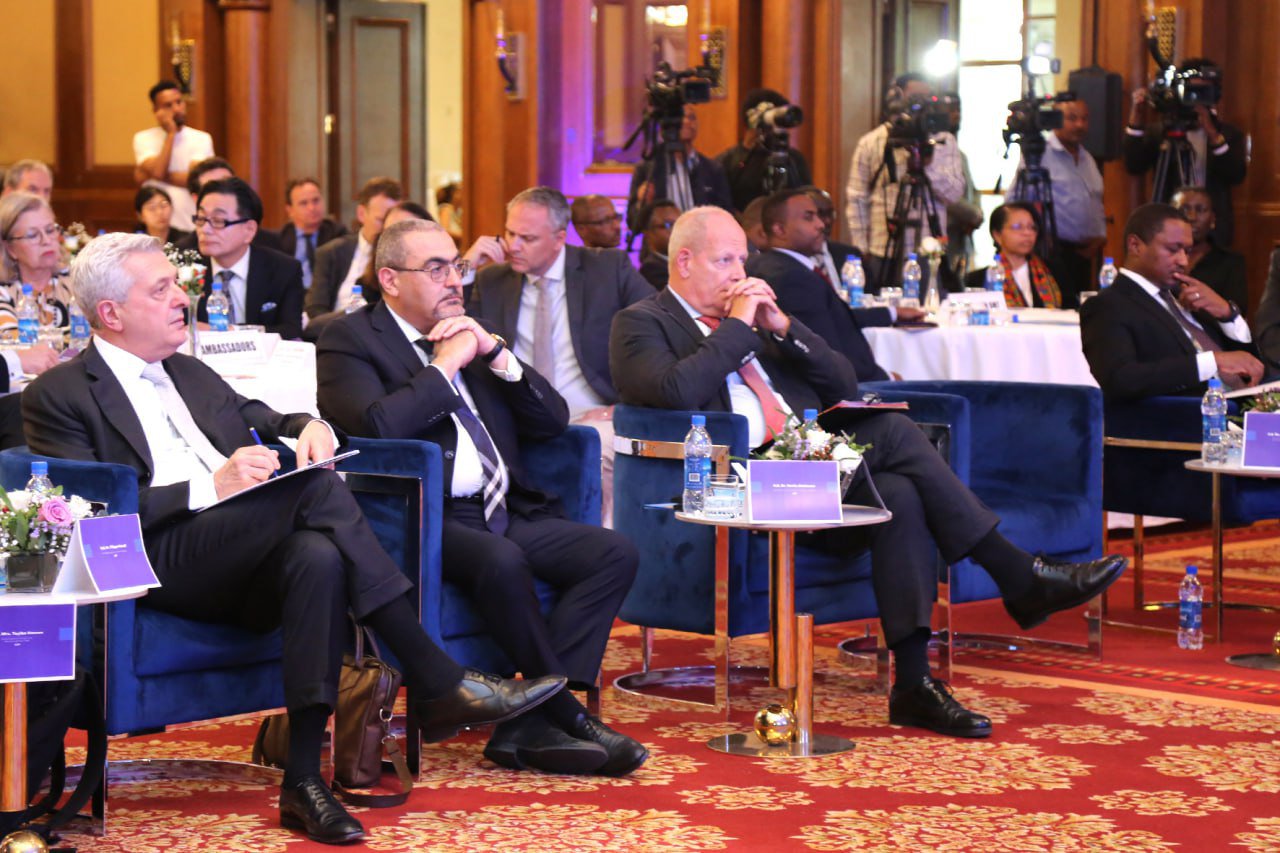
Earlier in the dialogue, H.E. Mrs. Teyiba Hassen, Director General of the Refugees and Returnees Service, noted Ethiopia's proud history of hospitality, which is home to over 1.1 million refugees. She underscored Ethiopia’s shift from a traditional humanitarian paradigm, emphasizing that refugees are recognized not just as beneficiaries of aid but as "active contributors" to communities and the economy. Mrs. Hassen reaffirmed Ethiopia's unwavering commitment to the Global Compact on Refugees, describing the nation's inclusion roadmap as a "strategic and impressive" development opportunity and a "global public good". She called for shared ambition to be matched by shared responsibility, requesting "concrete pledges, multi-year technical assistance and financial support" to meet Ethiopia’s commitments, acknowledging that progress would not be possible through governmental efforts alone.
Adding to the strong calls for global solidarity and investment, Dr. Ramiz Alakbarov, UN Resident and Humanitarian Coordinator in Ethiopia, lauded Ethiopia's "so open, so welcoming and so kind" spirit, calling it rare to see such generosity. Dr. Alakbarov asserted that refugees are "not victims" but "agents of change" and "carriers of knowledge, skills" who contribute to their societies. He delivered a stark message on funding constraints: "we cannot do more with less. We will do less with less". He called for better collaboration with refugees, host communities, and the private sector to build resilience, emphasizing that global military expenditures far outweigh humanitarian aid, necessitating greater investment in sustainable solutions.
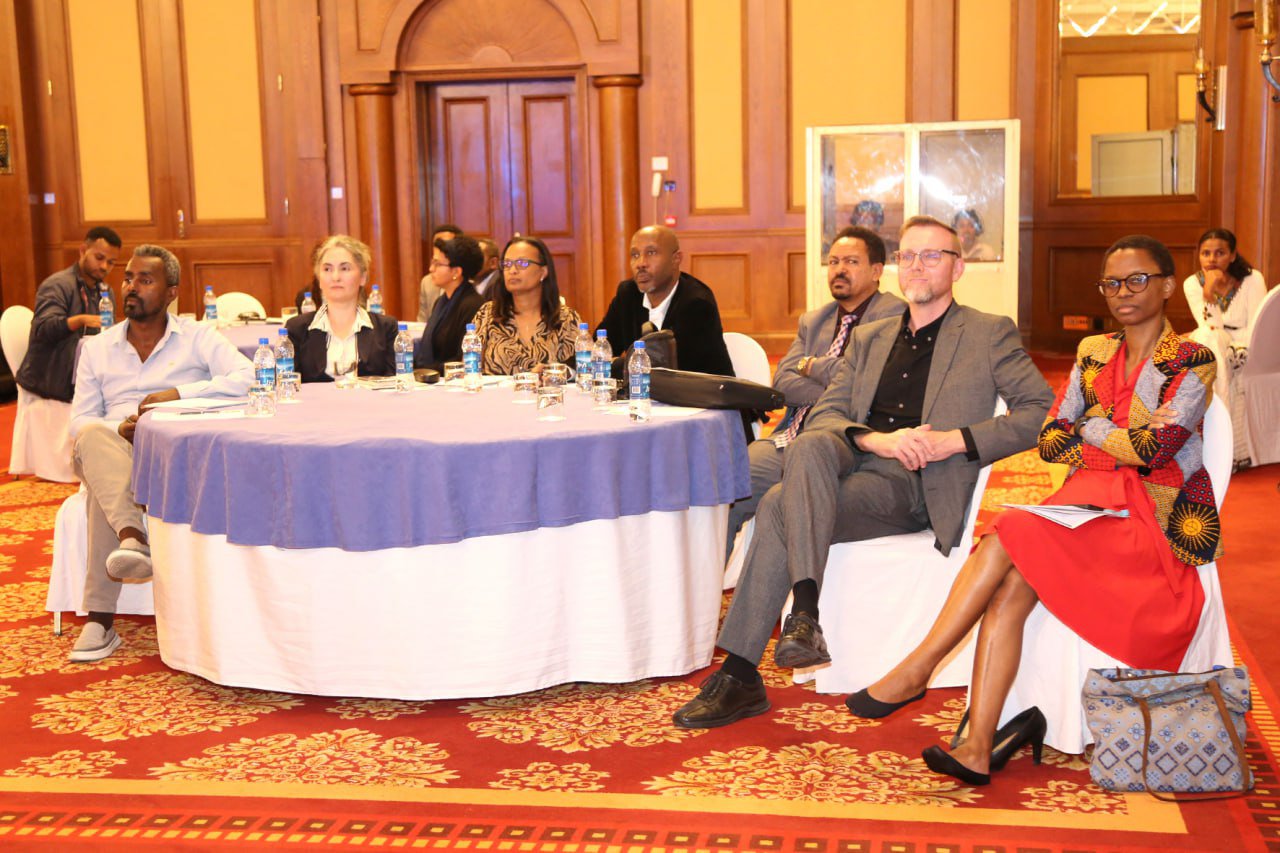
The dialogue brought together a wide array of participants including Ethiopian government ministers and regional presidents, Refugee Representatives, Development Institutions (e.g., World Bank, IFC, African Development Bank), Private Sector and Enterprise Leaders, Academia, UN Agencies, the Diplomatic Community, Continental and regional organizations (African Union, IGAD), and NGO Partners. The event's objectives included showcasing Ethiopia’s leadership, strengthening international partnerships, highlighting progress, identifying strategic solutions, amplifying the voices of refugees and host communities, and fostering cross-sectoral partnerships.
"The Government of Ethiopia remains firmly committed to leading from the front," concluded H.E. Mrs. Semereta Sewasew. She extended gratitude to the World Bank, particularly acknowledging its significant contribution through the IDA Window for Host Communities and Refugees (WHR), and all donors and development partners for their unwavering support. This dialogue marks a pivotal moment to align vision, resources, and partnerships, ensuring refugees are protected, empowered to contribute, and integrated into Ethiopian society as valued members, setting a global standard for implementing the Global Compact on Refugees, provided the international community steps up to meet its shared responsibility.

